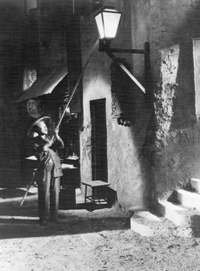'Millions dead and still many see no evil, hear no evil from Mao', The Sunday Times, 13 May 2016
In completing the final part of his trilogy on the Chinese leader, Frank Dikotter has done much to expose the famines and mass murders that marked his rule. So why does such a monster still have supporters in the West, asks Josh Glancy.
Appearing on Andrew Neil's This Week programme several years ago the Labour politician Diane Abbott offered the opinion that "on balance" Chairman Mao "did more good than harm". It's a view that still has some currency in parts of the left. Visit any university in Britain and somewhere on the staff you'll probably find a Maoist sympathiser.
Somehow, despite the famines and the mass murders, the cannibalism and the torture that can be clearly traced back to his policies, some people still think Mao Tse-tung is trendy, or at least defensible in polite society. His Little Red Book still sells all over the world. His pudgy face still appears on T-shirts and mugs.
The persistence of Maoist sympathy baffles Frank Dikotter, a 55-year-old Dutch historian who has done more than anyone in recent years to expose the realities of life in Mao's China. His "people's trilogy" covers the period from the establishment of the People's Republic in 1949 to the death of Mao in 1976 in three weighty tomes.
It has been hailed as the seminal English language work on the subject. The trilogy's enduring value lies in its unstinting description of the horrors of life under Mao: first the famine sparked by the "Great Leap Forward", a disastrous attempt to catapult the Chinese economy ahead of its rivals that Dikotter estimates killed 45m; then in his latest book, The Cultural Revolution, a sinister, chaotic and violent attempt to eradicate "bourgeoisie thought", neuter Mao's rivals and establish his legacy as the greatest Communist of them all.
His work is in the tradition of Robert Conquest, the British historian who did much to expose Stalin's crimes. Unsurprisingly it has garnered Dikotter hate mail and numerous trolls — many of them, he thinks, paid by the Chinese government to attack him online.
Like Conquest, Dikotter doesn't suffer fools gladly. And, unlike Abbott, he argues that Mao should be thought of in the same way as Stalin and Hitler — monstrous dictators who brutalised their people. He believes his work proves this. But there are still some in Europe who don't equate the crimes that these men committed. Why?
"A polite word for it is 'orientalism' [Edward Said's theory of patronising western views towards the east]," he says.
"I call it racism. If you see a child with blond hair and blue eyes behind barbed wire, it's a tragedy. If it's millions of people from Asia, it's a number. Do people in Europe really care? We don't."
Dikotter's critics claim he focuses excessively on Mao's crimes without providing context or exploring any positive achievements. He sees it rather differently: "To me, praising Mao's achievements is like saying Adolf Hitler built highways or was kind to his dog."
He believes that this orientalism applied to Mao is even more insidious because it works on two levels: his victims are not given the same status as westerners, but Mao himself is treated as a purveyor of mystical, Confucian-like wisdom. "Mao is seen to be a greater philosopher precisely because he is not a Stalin or a Trotsky," Dikotter says. "He is the kingly philosopher from the east. It's laughable."
Dikotter's use of original archival material has excited reviewers. I wonder how he managed to gain so much access, particularly in a country not famed for its free flow of information.
"Well, it's not that hard," he says. "A lot of the time you just turn up and present your letters of introduction.
"The question is: why are there not more people doing that," he adds, in a dig at those people he calls the "armchair sinologists" whose work on China involves "speaking to three taxi drivers on the way back to the hotel".
His most fruitful tactic has been to mine the provincial archives, where the staff know nothing of his work or how explosive some of the information they hold is. "In an authoritarian state pretty much anything can be forbidden," Dikotter says. But, equally, "anything can be possible" if you have a plausible manner and a convincing introduction.
Dikotter also benefited from a slight thaw in state secrecy around the time of the Beijing Olympics in 2008, but things have gone downhill since the accession of President Xi Jinping in 2012. Under Xi, some of the material that he accessed for his book has now been reclassified. Dikotter brands Xi a "mediocre little dictator" whose paltry attempts to build a personality cult "smack of desperation".
Dikotter has done much to ensure that we sees the full horror of what happened under Mao. His books are not published in China, where anything that threatens the official party line, on Mao or anything else, is often banned. It is a country where Google, Instagram, Facebook and even The Economist are blocked at times by "the Great Firewall of China".
Does he believe China will ever have enough freedom to face up to its own past? "Do I see a free China? Yeah, absolutely," he says. "It won't happen at the click of a button, but one day.
"And then all this rubbish, all this nastiness, all this culture of violence, all the lies and the deceit, all of it will come out.
"This is my response to those who criticise me and say I present too bleak an image: if this is the portrait I've been able to put together from unclassified files, what precisely do you think would be in the classified material?"
